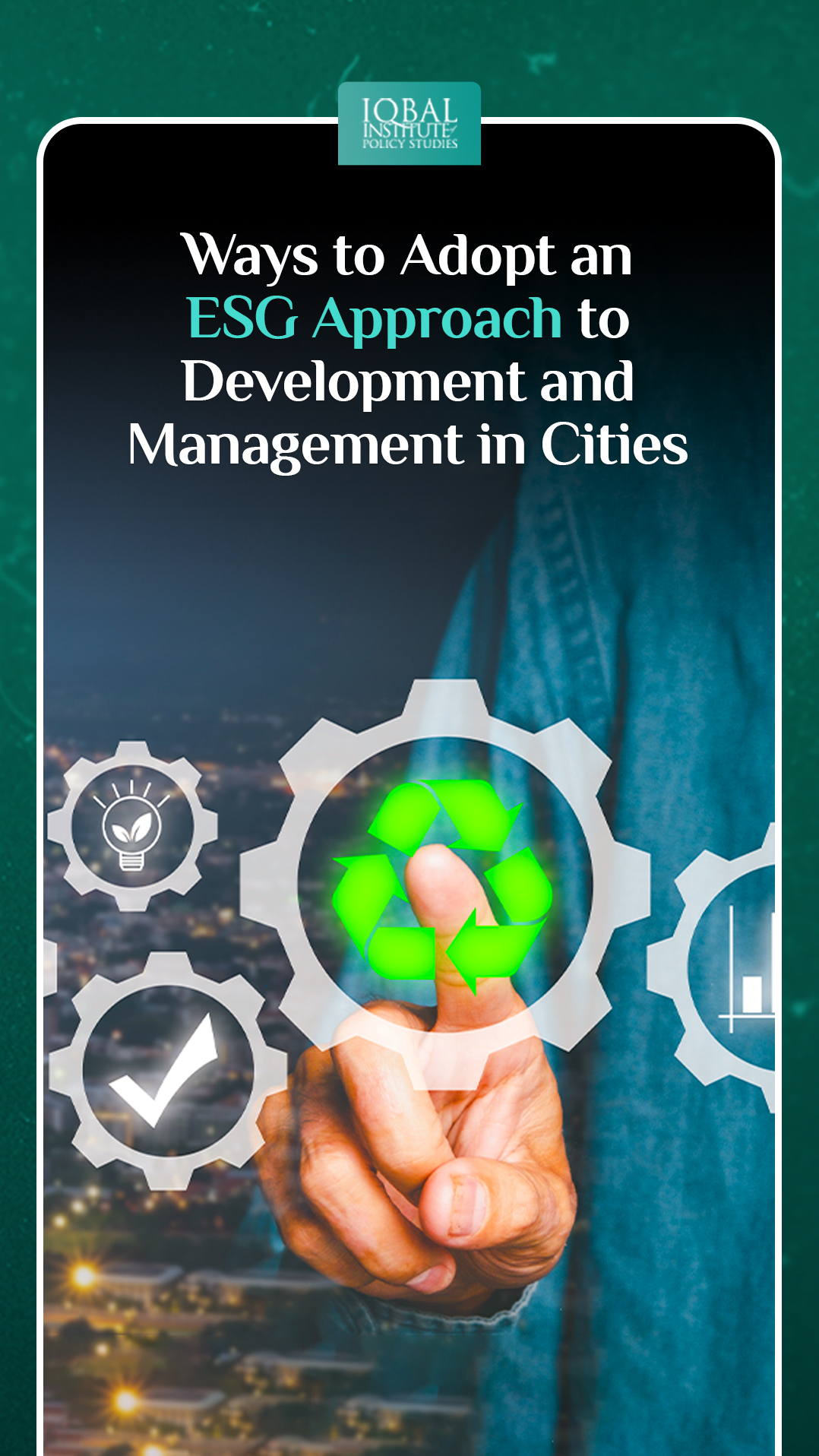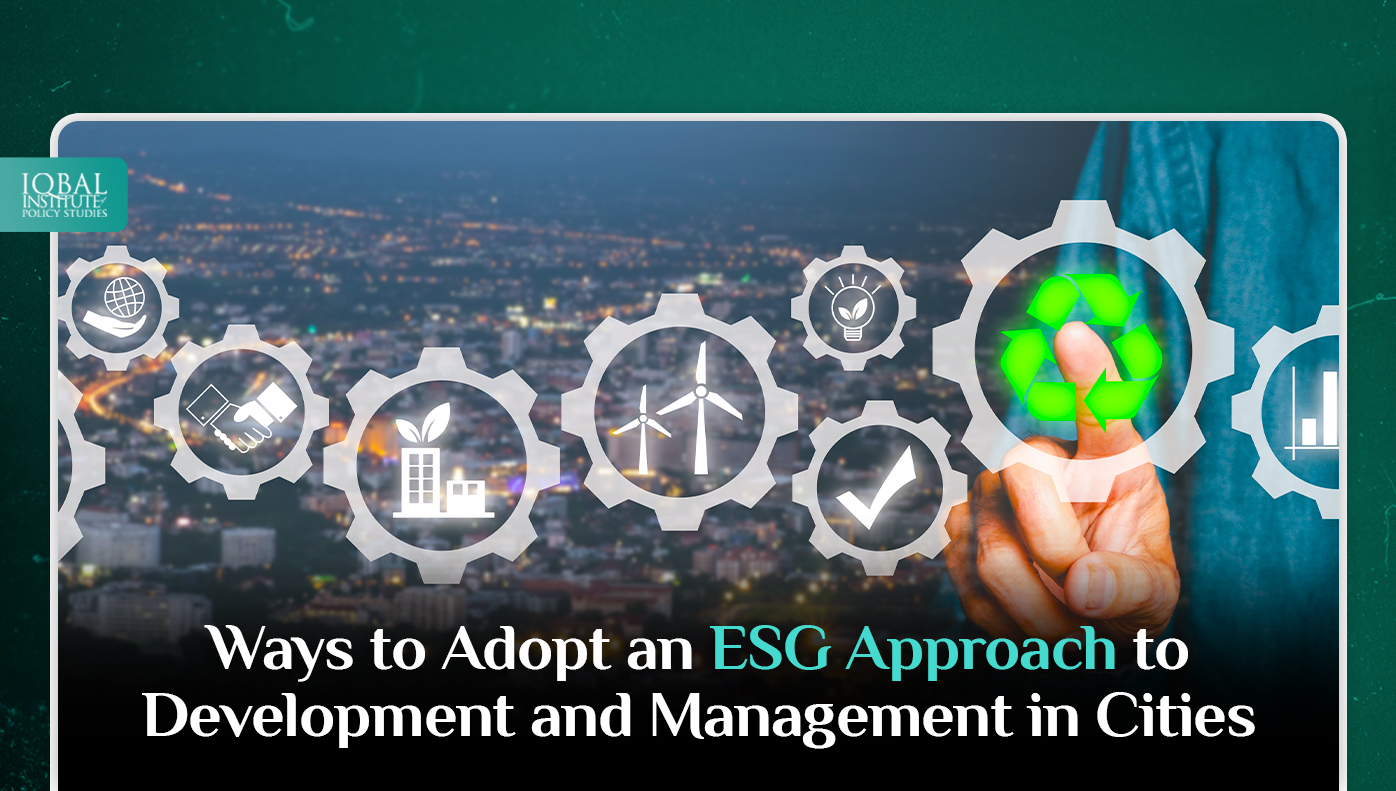Cities house around 60% of the world’s population and account for two-thirds of global energy consumption and more than 70% of global emissions. Moreover, as a result of urbanisation, the role of cities in resolving environmental and social challenges will continue to rise. Cities must take immediate action to address these global concerns locally. In this regard, cities and local governments should examine and address these socio-environmental concerns using an environmental, social, and governance (ESG) framework while assuring sound overall management. Given the close association between these approaches, cities can also guarantee that they are moving towards the 17 Sustainable Development Goals of the United Nations. It has been observed that smart and cutting-edge technology, including blockchain and digital twins, can assist municipal governments in creating practical answers to their socio-environmental problems.
What an ESG-based Approach Means to a City
An ESG-based approach to a city comprises ESG-related measures to be taken by local governments across three main and typical city government roles: regulations, strategic planning, funding/financing, service provision and monitoring.
Importance of City Governmental Roles
Regulations
According to a World Economic Report, around 86% of large companies said increased ESG regulation would accelerate and strengthen the integration of their own ESG strategies.
Strategic Planning
City governments are typically tasked with formulating city-wide master plans linked with national objectives and directives.
Funding/Financing
Cities are critical in ensuring that financial resources are allocated to support sustainable economic growth and address important urban concerns.
Service Provision
According to the International Council for Local Environmental Initiatives (ICLEI), local, regional, and city governments serve as the primary service providers for industries that account for a considerable amount of emissions.
Monitoring
City governments frequently have a significant monitoring role in areas like regulatory compliance and the advancement of strategic goals due to their proximity to the delivery of local services.
Actions Required by Cities and Local Government
Environmental
Concerning the environmental pillar of an ESG framework, a city’s primary focus should be on reaching net-zero goals through measures including sustainable energy production, water and waste management, and air pollution:
Regulations
Accelerate creating and accepting policies that reduce emissions in various sectors, including transportation, energy, water, and waste.
Various developed countries have shown strong leadership in implementing regulations to reduce emissions. For instance, New York City has built a Climate Mobilisation Act to reduce emissions by 40% BY 2030. This new regulation focuses on large buildings and their energy efficiency. Similarly, Zurich recently amended its constitution to add an article that calls on authorities to build resource management frameworks and close the material loop to minimise waste and energy use.
Strategic Planning
Incorporate net-zero and other key environmental goals into effective city planning, such as the city’s master plan
Considering the importance of strategic planning, Singapore has developed and integrated a Green Plan, a national movement to enhance sustainable development in Singapore. The plan focuses on five important pillars: City in Nature, Energy Reset, Sustainable Living, Green Economy, and Resilient Future, to put the country in a position to accelerate the accomplishment of its long-term net-zero emissions target.
Service Provision
Provide the timely and adequate delivery of services that assist the city in achieving its net-zero goals.
To achieve net-zero goals to ensure the timely provision of services, Dubai has launched the EV Green Charger initiative, which consists of delivering charging solutions across the Emirate and acquiring electric vehicles for the authority’s fleet. This initiative has helped to achieve reduction targets of 16% fewer emissions by 2019 while assisting to rapidly accelerate electric vehicle (EV) adoption in the Emirate.
Social
The primary focus of the city to consider the social pillar of an ESG framework must prioritise tackling social cohesion and inclusion as follows:
Regulations
Create policies and guidelines to advance local community cohesion and the inclusivity of vulnerable groups.
The city administrations should set regulations for designing and advancing public spaces and infrastructure to have equal access for people with disabilities.
Strategic Planning
Address local social issues by including them in local strategic plans and taking concrete steps to carry them out.
The local authorities must establish policies to guarantee that everyone, regardless of age, gender, ethnicity, or handicap, has equal access to opportunities and participation. These actions centre on two fronts: encouraging diversity in hiring practices and encouraging inclusive public discourse.
Service Provision
Ensure all societal members are provided with adequate and inclusive municipal services.
There should be municipal social protection service programs at the local level to accelerate the quantity and quality of integrated social care delivery.
Governance
The key focus of a city to consider the governance pillar of an ESG framework must be centred around the following:
Ecosystem Governance
Facilitating collaborations between stakeholders, including the corporate sector, other governmental bodies, non-governmental organisations, civil society organisations, and international multilateral organisations.
Transparency and Accountability
Making sure that city decisions, budgets, and progress updates are communicated promptly and openly to ensure transparency and accountability in the activities conducted.
Finance and Funding
Providing the effective distribution of capital to initiatives and projects that support environmental conservation and socioeconomic development.
Supply Chain Management
Using supply chain management policies (e.g. procurement policies) that consider suppliers’ social and environmental impact.
Monitoring and Oversight
Providing efficient management and monitoring of the city’s performance across various environmental and social aspects.
How Smart and Emerging Technologies Can Play a Role
Environmental
Digital Twins
City governments are already using digital twins connected to real-time IoT-based (Internet of Things) data to assist in monitoring and managing their environmental goals. For instance, several developed US cities are already utilising digital twin models for cities to better control energy use and emissions from metropolitan buildings.
Social
The Metaverse
Metaverse has a strong opportunity to safeguard disadvantaged and marginalised groups and to advance accessibility to services and experiences for a larger audience. Cities and local governments can consider hosting community events and providing social services on the metaverse as the technology develops.
Governance
Blockchain
The technology can be used for smart city management, such as trading local energy surpluses. For example, city management is exchanging surplus solar energy produced by rooftop panels on a blockchain platform in New York. The self-sufficient microgrid powered by cryptographic technology made energy transactions more affordable and improved energy resilience in case of city blackouts from natural disasters like hurricanes.
Conclusion
Cities are important in providing economies of scale, accumulation, and localisation. They offer efficient infrastructure and services through density and concentration in transportation, communications, power, interpersonal contacts, water, and sanitation. However, they account for many global emissions and face major adaptation challenges. In this regard, adopting an ESG approach with smart and emerging technologies for city development and management can help governments develop convenient solutions to their socio-environmental challenges and ensure good overarching governance.
This article is written by Radma Nouman. Radma is a Research Analyst at the Iqbal Institute of Policy Studies (IIPS).



Leave a Reply